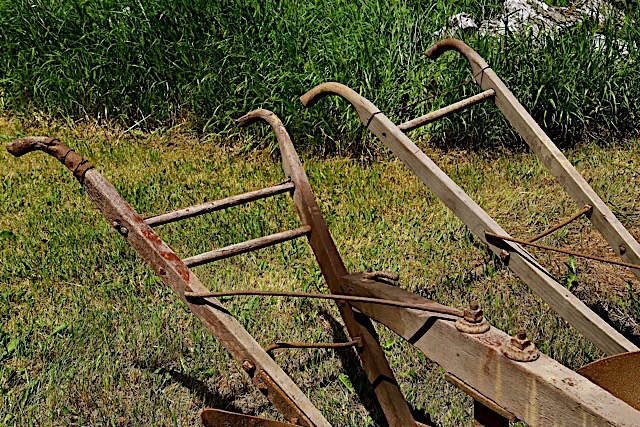A Word In Edgewise: Both Hands On The Plow

You never know, when you’re down, what power may lie in a friend’s casual words. While exchanging semi-annual greetings with an old classmate, I bemoaned my upcoming move and its complexities. “I’m overwhelmed!” I whinged.
My friend refrained from pointing out that many don’t have any options, or that I was trekking to St. Louis Park, not Ultima Thule, merely typed, “Both hands on the plow will get you there.” The clouds parted, the sun shone, my spirits lifted.
Curious, I Googled and found the original in Luke 4:28, where an adamant Jesus declared: “No one who puts a hand to the plow and looks back is fit for service in the kingdom of God.” This was not sunshine material.
Harsh and minatory as well were verses 26:27: “If you come to me but will not leave your family, you cannot be my follower. You must love me more than your father, mother, wife, children, brothers, and sisters—even more than your own life! Whoever will not carry the cross that is given to them when they follow me cannot be my follower.”
The gospel author is anonymous, and the book was compiled, notes say, between 80- 110 CE from several sources, including the Gospel of Mark; Q source, a hypothetical sayings collection, and L source, material not found in other gospels.
In modern times, the idiom “hand to the plow” usually means setting to work, getting the task done. I can imagine a seasoned farmer, used to his team and his lands, putting one hand to his plow and achieving a straight furrow. Not a beginner. Even metaphorically, my friend’s “both hands on the plow” makes more sense. With each hand attached and actively engaged urging forward, there’d be little looking back.
For the literal-minded, fields do have an end, boundaries of length and width. Driver and oxen must pivot as one and turn back, row after row, until every furrow’s dug, to ensure food for family and livestock.
The word boustrophedon, describes certain types of writing where lines alternate running right to left then turn back going left to right. Its roots are from the Greek bous (ox) and strephein (turning). The concept of return is ingrained; from home and barn in the morning, back-and-forth throughout the day, then return to family, food, and shelter at eventide.
Without making an analogy to the gospels, I wonder what parents, children, family, and friends would make today of a member who without a word of explanation or farewell, quit them forever to follow a stranger? It’s happened.
5100 Eden Ave, Suite 107 • Edina, MN 55436
©2024 Lavender Media, Inc.
